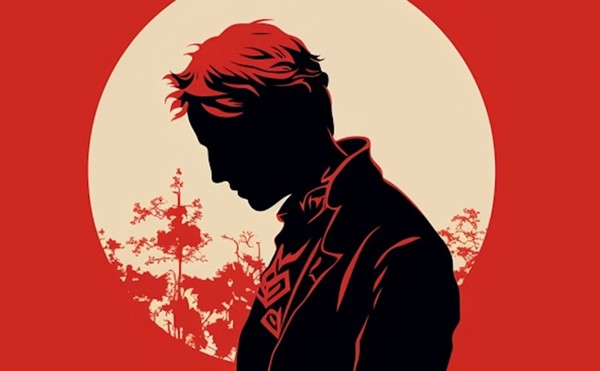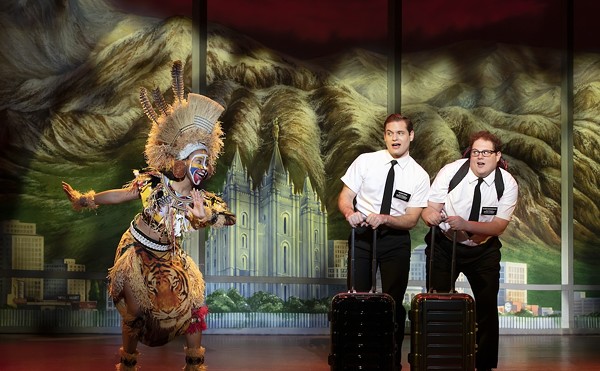Enter David Hare. In 1997, after a trip to Israel and the Palestinian territories, the British playwright wrote Via Dolorosa, a travel diary that recounts his time in the Middle East. The monologue was so personal that Hare, a non-actor, insisted on performing it himself. He did so to great acclaim, first in 1998 in London and then on Broadway in 1999. Now New Jewish Theatre is presenting this uniquely inquiring stage piece in a production that is totally absorbing for every second of its intermissionless 90 minutes.
Although the text includes allusions to the likes of Benjamin Netanyahu, Yitzhak Rabin and Yasser Arafat, Via Dolorosa transcends personality. "It is the story of a Westerner trying to understand two societies where belief is at the center of the way of life," Hare explains in his memoir, Acting Up. "It is about the wrenching effects on a person apparently without faith of meeting a whole lot of people who have only faith."
This is gorgeously written reportage, carefully distilled until the prose shines with precision. Hare meets with Israeli and Palestinian theater directors, with politicians. He spends a Sabbath in the West Bank settlements and visits the Palestinian refugee camps at Gaza. Always he is listening to the distinctive voices: Jews furious with other Jews, Palestinians despairing of other Palestinians. Then he finds time to be alone, to walk the Via Dolorosa, the final steps on Christ's journey to his death, and ponder the enormity of the problems that strangle the Middle East.
Pundits have long debated whether Hare's script is more sympathetic to the Jews or the Palestinians. But when you see the piece, that concern becomes irrelevant. This is not advocacy theater, and to only hear what you want to hear is to confirm Hare's dismaying premise, uttered as he stands in Jerusalem's Garden of Remembrance, that "We're all blind. We all see only what we want to. Don't we blank out the rest?" It is "the rest" that is Via Dolorosa's reason for being.
Curiously, the fact that Hare is not delivering his own lines here transforms this New Jewish production from a performance piece into a play. As staged by Doug Finlayson, Hare speaks to us from his cluttered study in Hampstead Heath. An abstract sculpture of Israel and the Palestinian territories hovers over Dunsi Dai's set. Glenn Dunn's lighting finds the play's beats and serves to clarify the story. Jerry Vogel portrays Hare with directness and lucidity. After the first slightly self-conscious two minutes, it never again occurred to me that Vogel was acting a role; he was simply telling a story. He was the text, and he held my attention for every second.
In one of the evening's many humorous passages, Hare recounts a heated family argument among a settlement family over a bit of biblical text. To wit: Is a child of three capable of carrying forty buckets of water? The debate intensifies until Hare emits a silent scream: "Can we please stop shouting for a moment?" Via Dolorosa transports us to a universe ruled by passion. Yet thanks to Hare and Vogel, we leave the theater cleansed by that rare, refreshing clarity that accompanies learning.
St. Louis actress Magan Wiles, who spent last summer in the Middle East, offers a complementary point of view with "Beautiful Resistance: Confessions of a Hoosier in Palestine." The one-hour multimedia presentation will be performed at 7 p.m. on February 2 in Tegler Auditorium on the Saint Louis University campus. Admission is free.





